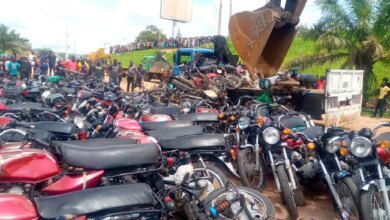AGI holds Tema regional annual meeting, calls for fair electricity tariffs to support industries


The Association of Ghana Industries (AGI) has held its Tema regional annual general meeting with a renewed call on government to ensure fair electricity tariffs to safeguard the survival and growth of private enterprises.
The event, which marked the final in a series of regional meetings across the country, was held under the theme “Creating a Conducive Business Environment for Industrial Competitiveness: 24-Hour Economy in Perspective”.
Delivering his address, Seth Twum-Akwaboah, Chief Executive Officer of AGI, underscored the adverse effects of high energy costs and erratic power supply on industrial production.
While acknowledging the need for power sector companies to remain viable, he stressed that tariff adjustments must not cripple industries.
“AGI is engaging government for a fair tariff, or it will kill the industries,” Mr Twum-Akwaboah cautioned.
He added that although AGI continues to collaborate with the government on initiatives such as the proposed 24-hour economy, broader macroeconomic challenges, including exchange rate volatility, taxation, and regulatory issues, must also be addressed to create a truly competitive industrial environment.
On exchange rate management, Mr Twum-Akwaboah noted that while recent improvements in the cedi’s performance were commendable, industries required long-term stability to ensure effective planning and predictability.
He further highlighted that certain companies suffered losses during the rapid appreciation of the currency and urged the government to extend targeted support to such businesses.
Touching on taxation, he emphasised that AGI was not opposed to taxes but insisted that tax policies should be structured in a way that strengthens local industries and enhances competitiveness in both local and export markets.
Mr Twum-Akwaboah also identified weaknesses in the production value chain, particularly the unavailability of raw materials throughout the year. He explained that industries often resort to importing inputs from neighbouring countries due to seasonal shortages in local supply.
“It’s not that we don’t have the materials, but the value chain is weak. When the produce is in season, there is plenty; when out of season, industries cannot access it. Production, however, demands continuous availability of raw materials,” he observed.
On industrial expansion, Dr Eddie Akwetey, regional chairman of the Tema branch of the association, revealed that AGI Tema had begun engagements with the National Industrial Property Development Authority (NIPDA) to secure land for industrial use, given the limited availability of space in the main Tema industrial zone.
The meeting also provided an opportunity for AGI members to review the year’s activities, assess progress, and plan for the future.
As part of the programme, Samuel Oteng, Greater Accra East (Tema) regional director of the Environmental Protection Agency (EPA), briefed participants on environmental compliance.
He urged industries to renew their permits on time, beginning the process at least three months before expiry, warning that late renewals would attract a penalty equivalent to three times the applicable fee.
DISCLAIMER: The Views, Comments, Opinions, Contributions and Statements made by Readers and Contributors on this platform do not necessarily represent the views or policy of Multimedia Group Limited.
DISCLAIMER: The Views, Comments, Opinions, Contributions and Statements made by Readers and Contributors on this platform do not necessarily represent the views or policy of Multimedia Group Limited.
Source link




